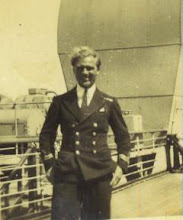
I think we all get a bit glum and gloomy around this time of year, don’t we? Our days are truncated, more or less overnight, the very last of autumn’s leaves tumble from the trees and there is no more denying that dull, dank winter is here. Somehow it seems an especially poignant and fitting season to set aside time to remember the fallen.
It is always a particularly sad time of the year for me. Fourteen years ago, on a dark Friday evening in early November, my husband Peter closed his eyes for the final time, at the end of an angry combative, but thankfully brief, battle with cancer.
He had been ill for months but it still came as a shock. We had enjoyed the most marvellous Indian summer and I began to hope against hope that the doctors were wrong. But then the clocks went back. He didn’t even last a week.
Peter died on November 7th and we held his funeral a week later. So, for me, Armistice Day and Remembrance Sunday always come at a pensive and rather wistful time. That said, I welcome and even enjoy this season: the solemn ceremonies, the unspoken solidarity between poppy wearers, the stirring, yet heart-breaking, first bars of The Last Post.
Armistice Day and Remembrance Sunday have taken on rather more resonance over the last few years. The unending stream of caskets containing the mortal remains of British troops paying the ultimate sacrifice in Afghanistan has kept the role of the armed forces, their dedication and their courage, in the public eye, if not always in the headlines of the news.
A total of 375 British servicemen have lost their lives since the Afghan operation started in 2001. The latest casualty, Pte Matthew Thornton of 4th Battalion, the Yorkshire Regiment, was killed by an IED in Helmand only two days ago. He was 28. In the prime of his life.
A few years ago, to be honest, Afghanistan barely crossed my mind. I certainly did not condone our involvement but I didn’t even know how to find it on a map. But then three members of my extended family were posted to the country and what went on in Kabul and in Camp Bastion suddenly took on an entirely new, and deeper, significance for me.
Since then, I have made it my business to find out a bit more about what is happening on the ground out there, about how dangerous it is for our boys, about whether or not our presence is making any difference whatsoever. I am not sure I am any the wiser but for me, the planned withdrawal cannot come a moment too soon.
My feelings were crystallised when we lived, for a few years, in the heart of rural Oxfordshire. Our old barn was a mile or two from the A420, the main Oxford-Swindon trunk road, the route taken from RAF Lyneham and Wootton Bassett by the military cortèges transporting the bodies of fallen soldiers to the John Radcliffe Hospital.
I will never forget pulling over, one day in July 2009, getting out of the car, to stand, head-bowed in sorrow and disbelief , as eight hearses, bearing eight Union Flag-covered coffins rolled slowly by.
Sadly, there is very little else we can do for those eight men and boys, nor for Private Thornton nor for the hundreds of others who gave their lives for their country. We can support their families and we can honour their sacrifice.
In their memory, however, we need to uphold a duty of care to the British troops who have seen combat, in Afghanistan and in Iraq, over the past decade. Of these estimated 200,000 servicemen and women, it is thought that around one in four will return from the theatre of war with mental health problems, ranging from alcohol dependency to full-blown post-traumatic stress. Unsurprisingly, ex-servicemen make up around 20 per cent of the homeless population.
Unlike those returning with physical injuries, those with hidden wounds are often too proud to get help, suffering years of psychological torment before seeking treatment. Since 2005, charity Combat Stress has seen a 72 per cent increase in demand for their specialist services, caring for the mental health of veterans. Last year, they had more than 1,400 new referrals, giving a current caseload of nearly 5,000 individuals.
Not every injury sustained in battle is a visible one. Yet psychological wounds can be just as painful, devastating, life-changing and difficult to treat as physical ones, requiring months and years of careful rehabilitation.
As long as our troops are still risking their lives in remote and distant foreign fields, we need to ensure that they receive as much support as they need, whether social, financial or emotional. not only while they are on the front line but perhaps more importantly, when they return home, to families and friends who have scant comprehension of the horrors they have seen.
So let us take time, in this sombre season, to think of the fallen and to give thanks. But spare a thought too, for the survivors, for the ones who did come home and for those whose sacrifice may be well be rather more significant than we suspect.











